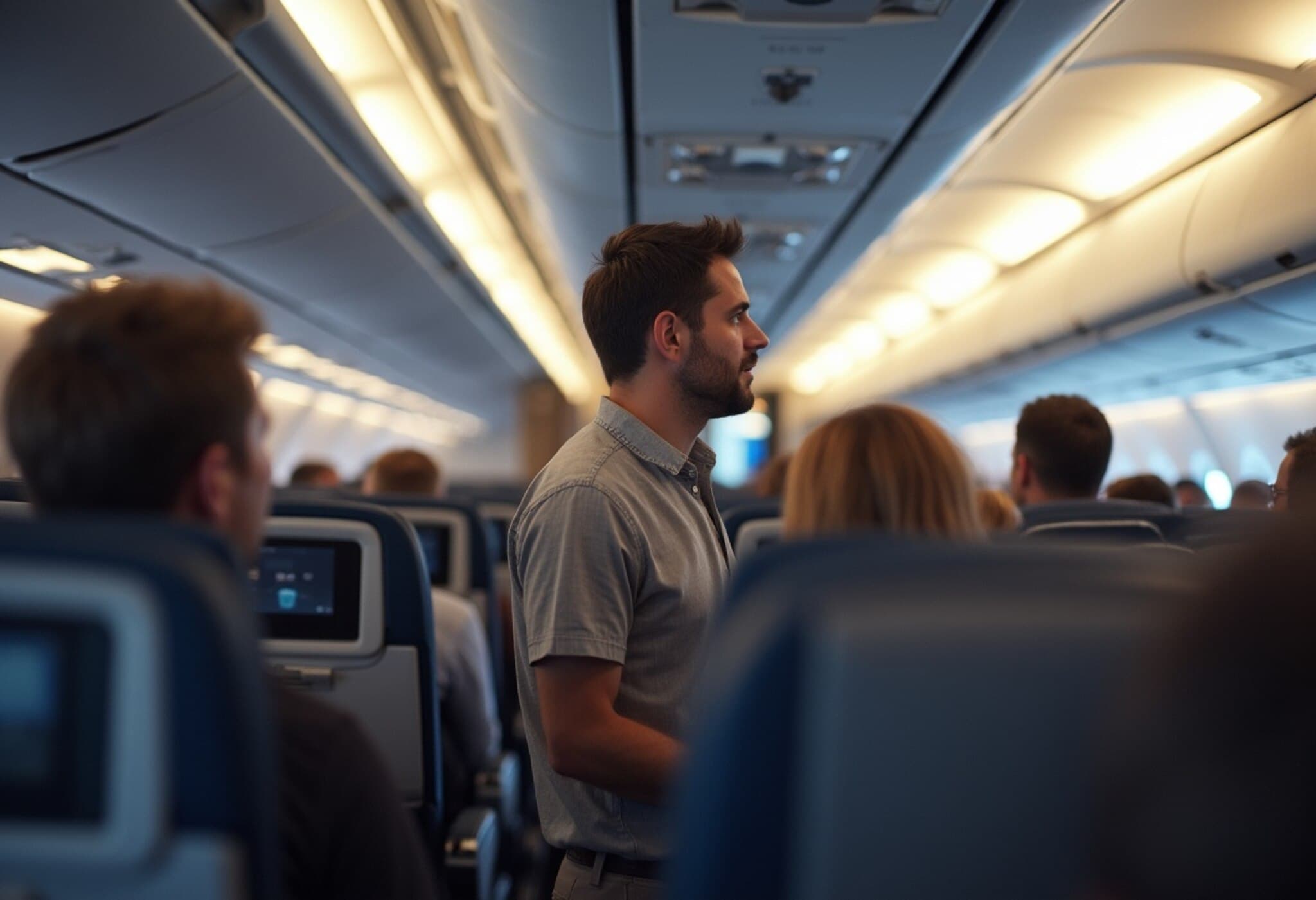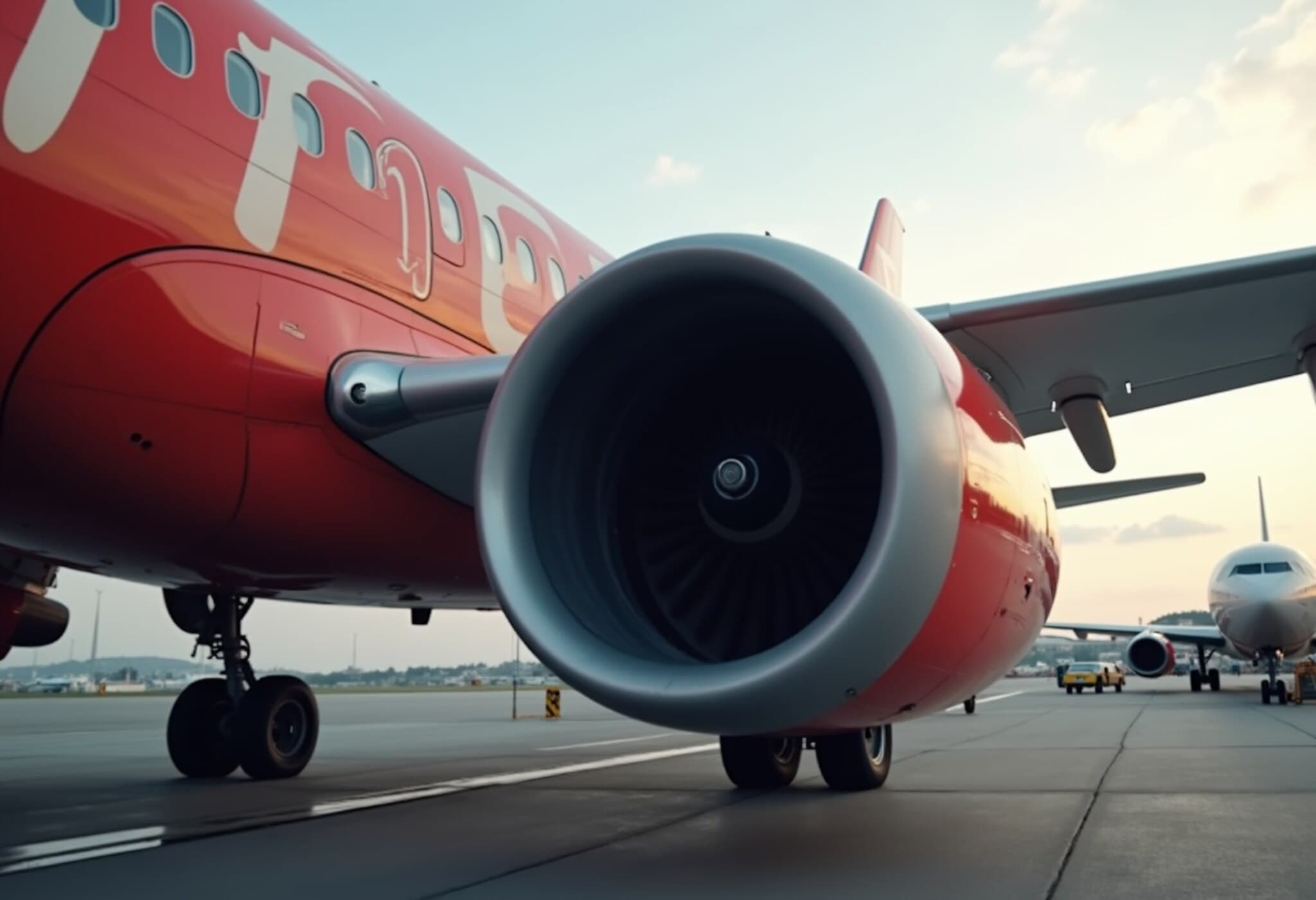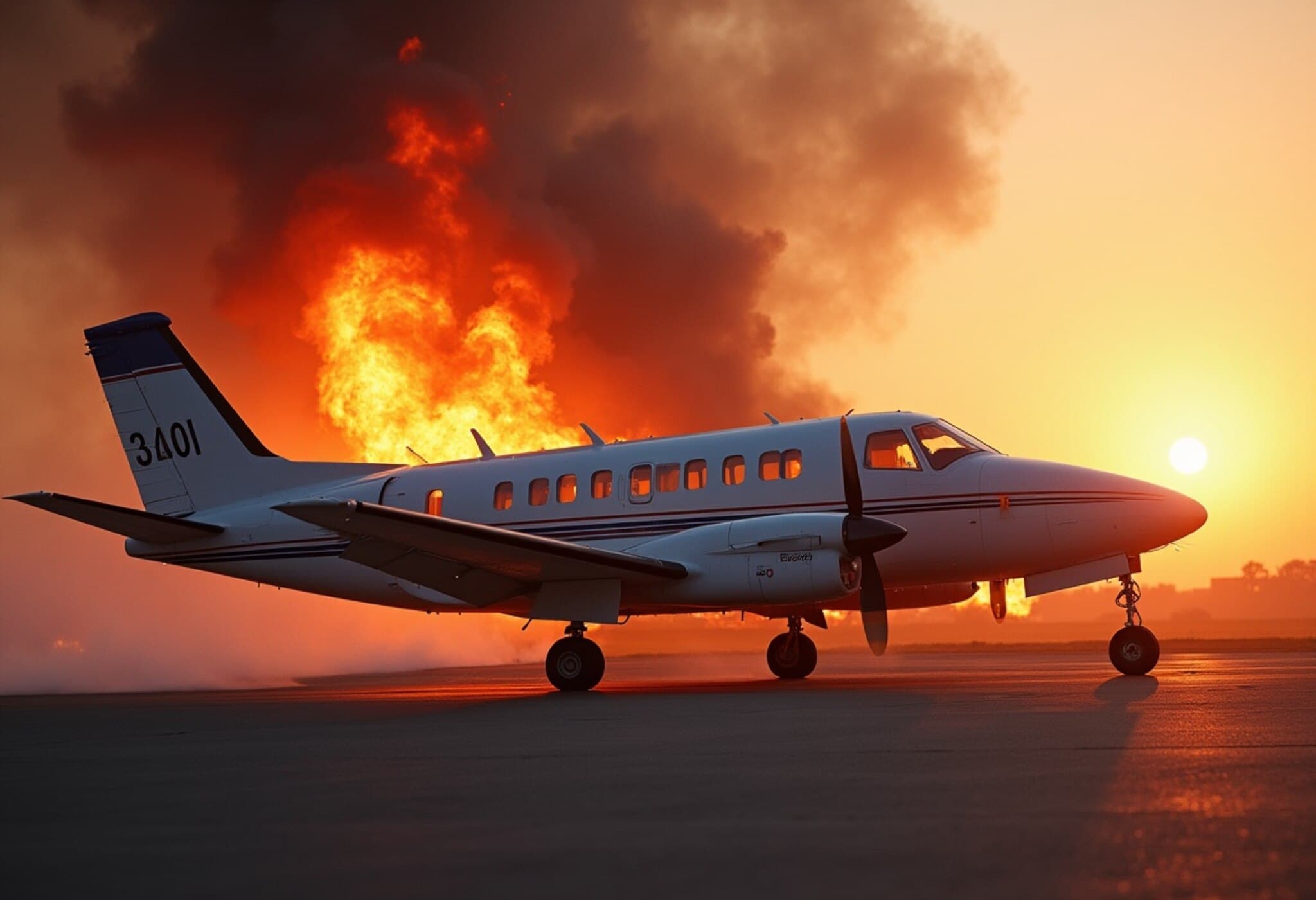Emergency Landing After Mid-Flight Bomb Threat on EasyJet
In a startling incident on July 27, 2025, an EasyJet flight traveling from London Luton to Glasgow was forced to make an emergency diversion to Glasgow Airport after a passenger issued alarming bomb threats mid-air, accompanied by religious chants. The unsettling episode, caught on video and rapidly shared across social media platforms, has reignited discussions on airline security, passenger safety, and the psychological impacts of air travel disruptions.
The Incident Unfolded: Passenger Confronts Crew and Fellow Travelers
According to eyewitness accounts, the 41-year-old man emerged abruptly from the aircraft’s rear lavatory, shouting “Allahu Akbar,” followed by inflammatory statements including “death to America” and “death to Trump.” Passengers were caught off guard as the man, described as physically imposing, claimed to have a bomb, creating immediate panic and confusion on board.
One passenger, choosing to remain anonymous, told reporters, “He came out shouting with his hands raised, and then said ‘I’ve got a bomb,’ which initially seemed like a bizarre joke but soon took a serious tone as his aggression escalated.” Flight attendants confronted the man but were physically pushed back. Their vulnerability contrasted starkly with the passenger’s intimidating stature, underscoring the gravity of the situation.
Passengers Act Swiftly, Flight Crew Responds with Urgency
Thanks to the quick intervention of three fellow travelers, the man was restrained and pinned to the cabin floor, preventing potential harm. Meanwhile, the flight crew swiftly declared an in-flight emergency and commenced a rapid descent towards Glasgow, prioritizing passenger safety over schedule.
Passengers described the descent as sudden and intense. Despite fears of a more hazardous diversion or a chaotic landing, the plane touched down safely and was guided to a secluded area of Glasgow Airport. There, authorities boarded the plane and arrested the suspect without further incident.
Broader Implications for Aviation Security and Passenger Well-being
This incident raises urgent questions about the effectiveness of current security protocols on commercial flights, particularly regarding behavioral threats that manifest mid-flight. While preboarding security screening is thorough, unpredictable situations involving mental health crises or politically motivated disruptions remain a critical challenge.
Experts suggest that airlines may need to invest more in crew training for de-escalation and rapid response to passengers exhibiting threatening behavior. Additionally, psychological support for passengers traumatized by such events deserves stronger emphasis to mitigate long-term effects of anxiety and panic triggered at 30,000 feet.
Contextualizing the Event in a Global Climate of Increased Flight Disruptions
Globally, commercial aviation has seen a rise in disruptive passenger incidents linked to various motives, including political protest, mental health issues, and ideological extremism. This episode, marked by religious and political chants alongside bomb threats, reignites the debate on balancing civil liberties with collective security.
From a policy perspective, regulators face the complex task of enhancing safety without fostering undue profiling or discrimination, particularly in multicultural and politically complex societies.
Expert Commentary
Dr. Laura Bennett, a security analyst specializing in aviation safety, notes, “This event underlines the necessity of comprehensive threat assessment mechanisms that combine technology, training, and passenger cooperation. When passengers take proactive roles—as happened here—the outcome can be dramatically improved.”
Meanwhile, sociologists highlight the psychological impact on both passengers and crew. “An event like this can leave lasting trauma, emphasizing the need for airlines and authorities to provide counseling and support after incidents,” says Dr. Amir Shah, a trauma psychologist.
Looking Ahead: What Airlines and Passengers Can Learn
- Enhanced Crew Training: Prioritizing conflict de-escalation alongside safety procedures.
- Passenger Awareness: Encouraging vigilance and calm interventions where safe to do so.
- Policy Reforms: Balancing security with civil rights in regulating air travel.
- Mental Health Screening: Considering behavioral health as part of pre-flight assessments.
Editor’s Note
This EasyJet flight disturbance is a sobering reminder of the unpredictability inherent in modern air travel and the critical role of passengers and crew in crisis management. It opens a broader conversation about the intersection of security, mental health, and civil liberties in aviation. How can airlines better prepare for such threats without compromising passenger dignity? And what responsibilities do fellow travelers hold in ensuring safety? As the aviation industry grapples with these questions, public awareness and informed discussion remain vital.











